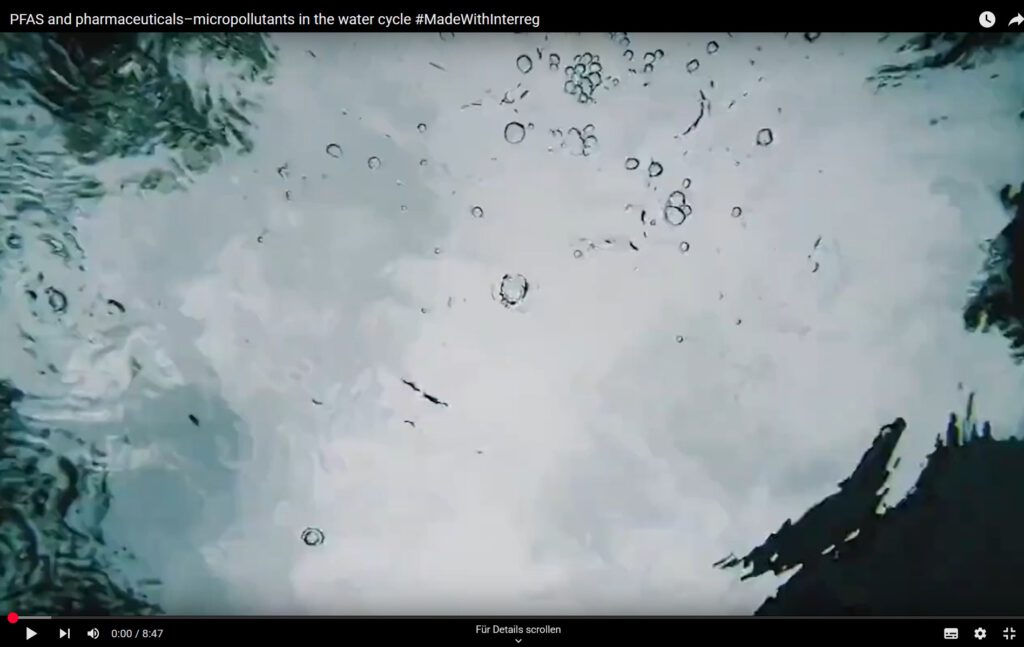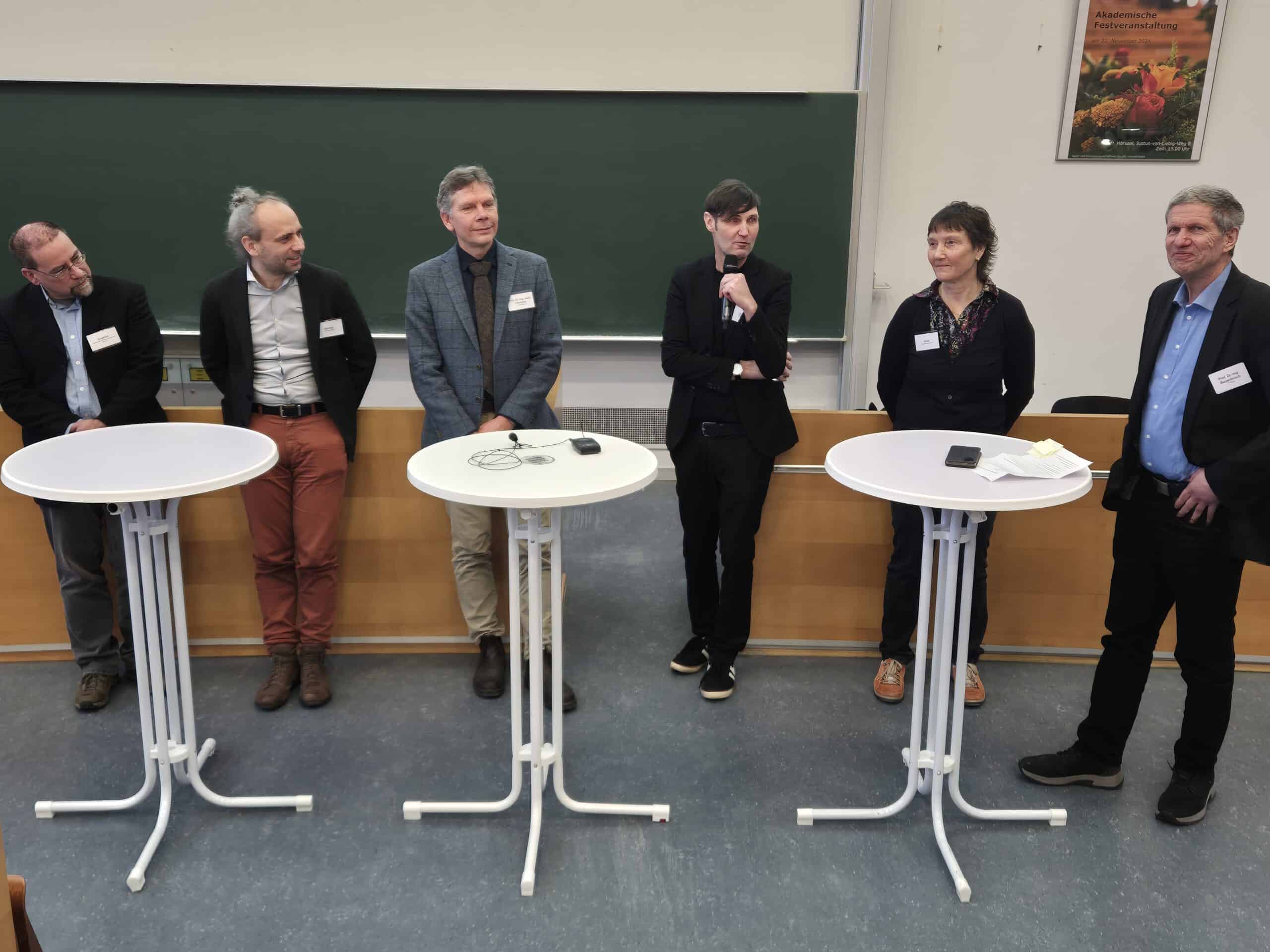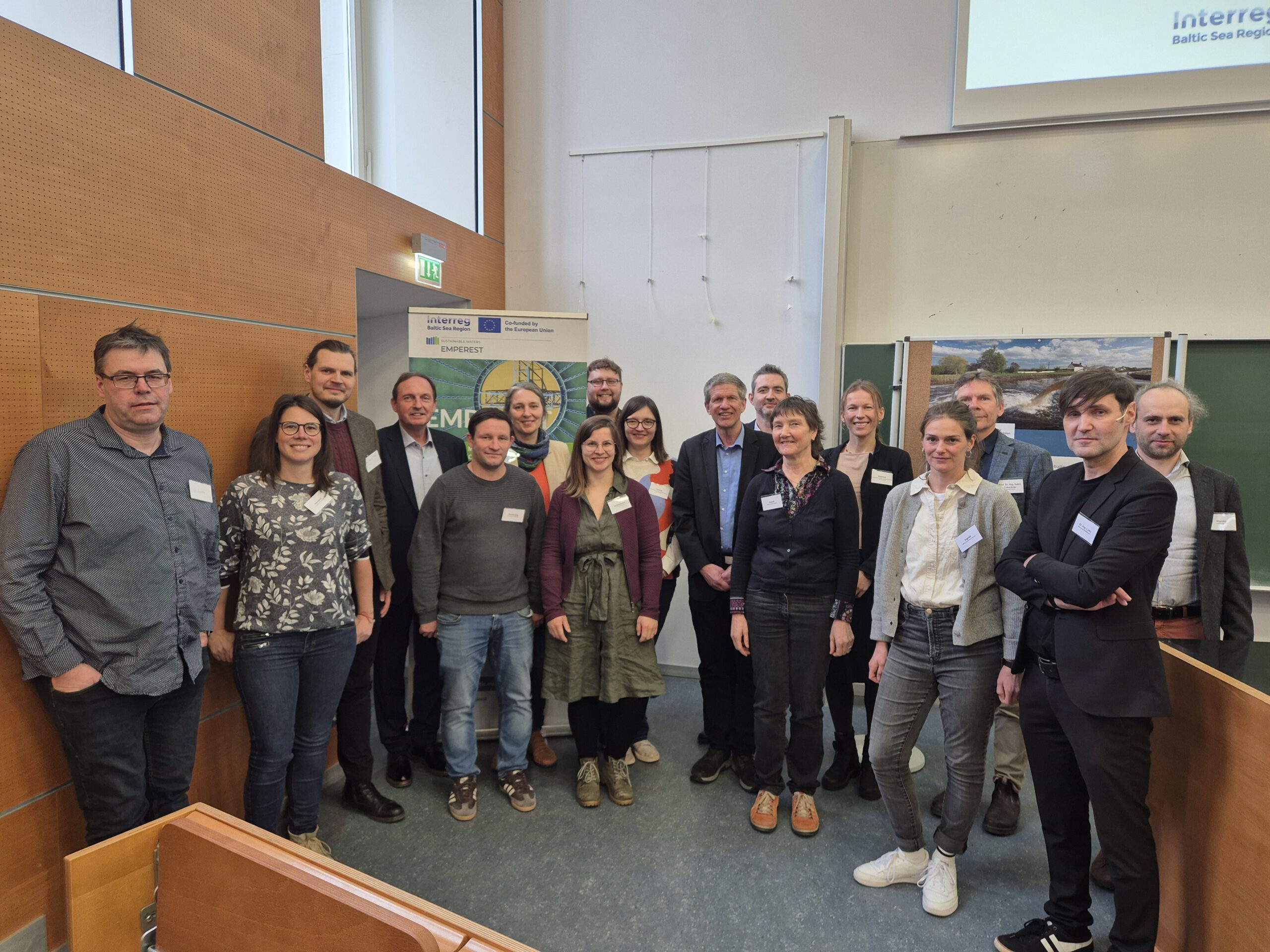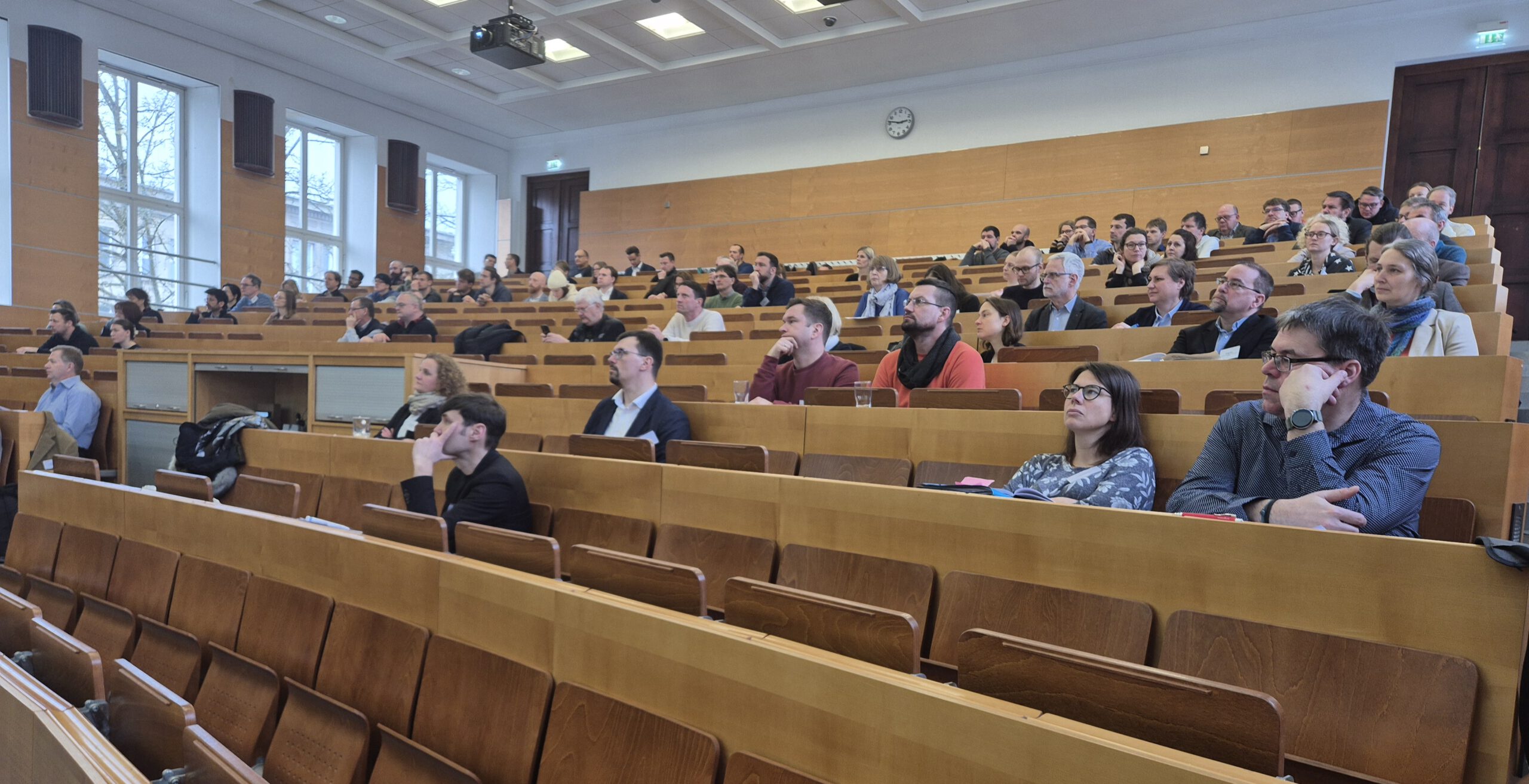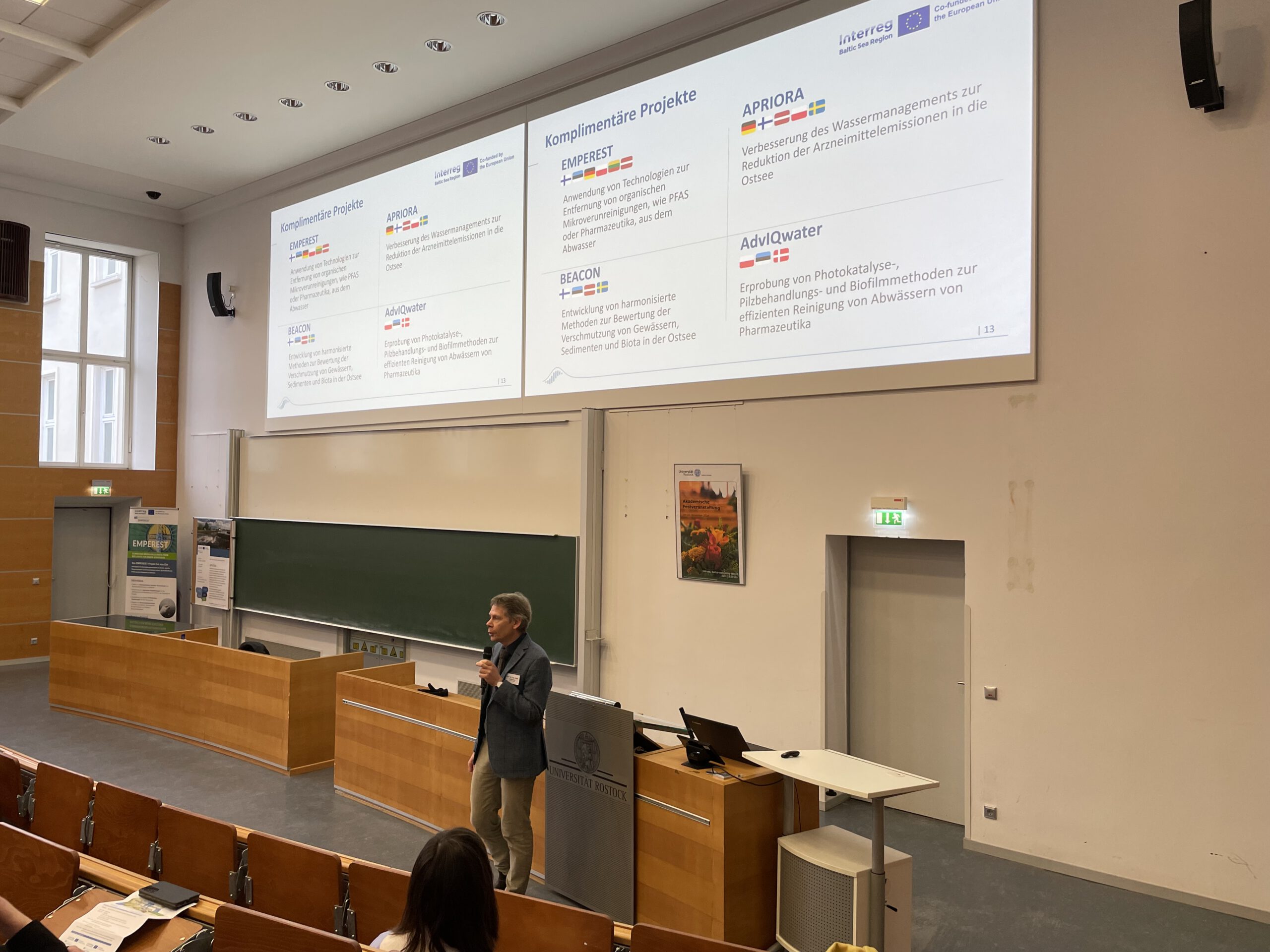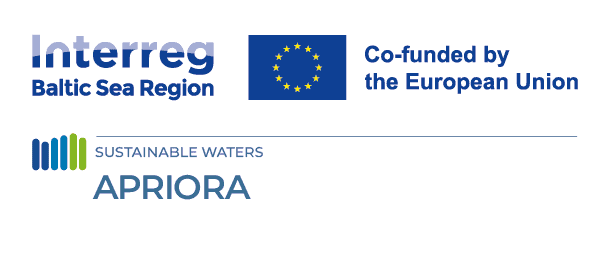
New video out now: Insights into APRIORA challenges
22 April 2025
Pharmaceutical substances and PFAS, also known as “forever chemicals,” are polluting our rivers, lakes, and even drinking water. At a workshop held on 12 February 2025 at the University of Rostock (Germany), experts from the projects APRIORA and EMPEREST came together to share insights, challenges, and solutions. A new video released by APRIORA and co-funded by the Interreg Baltic Sea Region (BSR) Programme, tells how scientists, authorities, and utilities are joining forces to tackle this challenge in the region. Watch it now here:
With regard to upcoming legislations, many regional stakeholders took the chance to get more informed about PFAS and pharmaceuticals in the environment. Nearly 100 participants joined the workshop representing wastewater treatment plant operators, regional and local authorities and environmental agencies as well as researchers.
Key insights from the experts
During the common workshop of APRIORA and EMPEREST, we talked with regional project partners and associated organisations about actual challenges and needs. APRIORA, coordinated by the University of Rostock, focuses on pharmaceutical pollution and works with partners in Sweden, Finland, Poland, and Latvia. The project uses advanced monitoring and modelling to identify hot spots and assess which water bodies are most at risk.
“Monitoring everywhere is not practical. But by combining targeted monitoring with smart modelling, we can estimate pharmaceutical loads and identify where action is needed—and where it’s not.”
— Prof. Dr.-Ing. Jens Tränckner, APRIORA
PFAS, the focus of the EMPEREST project, are notoriously difficult to remove at wastewater treatment plants. Researchers are currently testing similar advanced technologies as considered for removing pharmaceuticals, such as ozonation, activated carbon, and ion exchangers.
“Although ozone is less effective than activated carbon, combining both with ion exchangers could offer a promising approach. It’s more expensive—but worth it for protecting our water.”
— Prof. Dr.-Ing. Matthias Barjenbruch, TU Berlin
The workshop also highlighted regional challenges. In Mecklenburg-Western Pomerania, small water bodies with low flow rates make dilution difficult, resulting in higher concentrations of pharmaceuticals and other hazardous substances. Comparing with potential threshholds, the regional environmental agency expects a clear reason to act.
“We observe quite high pharmaceutical concentrations—up to 40 different substances in a single water sample. It reflects our older population and the structure of our water networks.”
— Angela Nawrocki, State Office for the Environment, Nature Conservation and Geology (LUNG MV)
Interreg BSR: A platform for regional solutions and collaboration
“The projects APRIORA and EMPEREST are very important for our programme. Everything related to water directly affects the Baltic Sea, and we aim to protect it through cooperation across the region.”
— Orsolya Schulz, Interreg BSR Programme Officer
Thanks to the Interreg Baltic Sea Region Programme, APRIORA and EMPEREST can connect researchers, policy-makers, and practitioners across borders to find shared solutions for shared problems.
“Of course, operators want to know what to expect: How dangerous are PFAS? How can they remove them? How should they prepare for the fourth treatment stage?”
— Dipl.-Ing. Ralf Schüler, Managing Director, DWA Regional Group North-East
Local utility Nordwasser GmbH is already working closely with the University of Rostock to explore real-world applications.
“It’s not a trivial issue here in Rostock, especially with our proximity to the Baltic Sea. Academic collaboration helps us improve our wastewater treatment and protect our coastal waters.”
— Henri Hoche, Head of Engineering, Nordwasser GmbH
Don’t Miss the Full Story
This new video offers an inside look at how science, policy, and practice are aligning to protect water across the Baltic Sea Region—and why your wastewater treatment plant may soon be getting a serious upgrade.
Watch the video now and discover how APRIORA and EMPEREST are joining forces for clean water in the Baltic Sea Region.





